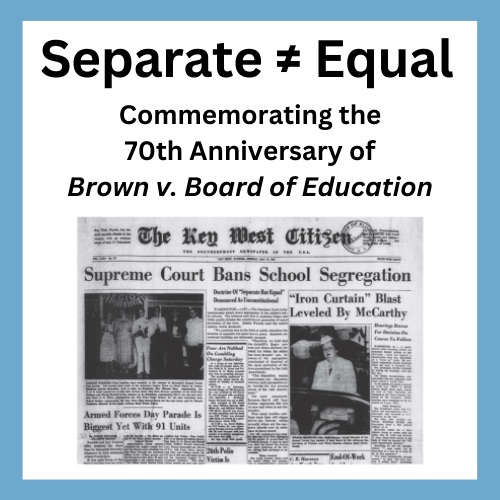Dear Commons Community,
Today is the 70th Anniversary of the Brown v. Board of Education Decision that declared segregated public schools “unconstitutional”. In perhaps the most important decision of the 20th century, the U.S. Supreme Court unanimously decreed on May 17th, 1954, that in the field of public education, “the doctrine of ‘separate but equal’ has no place. Separate educational facilities are inherently unequal.” As many of us know, this decision changed the face of education throughout the country but especially in the South. The strategy to use the courts to challenge segregation in public education began in the 1930s with the NAACP under the leadership of Charles Hamilton Houston. Houston was the dean of Howard University Law School. Thurgood Marshall, the lead attorney for the plaintiffs, was recruited by Houston. Houston died in 1950 and never saw the fruits of his decades of labor.
The Brown Decision paved the way for much progress in education and race relations in this country but there is still much to be done in creating a truly equitable public school system. Attorney Jack Greenberg, member of the NAACP Legal Defense Fund’s legal team in Brown, poignantly refers to the numerous individuals who were involved in the case: “Before lawyers can win cases there have to be clients willing to stand up for their rights. The American Blacks who proved willing to fight segregation and discrimination were organized for the most part by the National Association for the Advancement of Colored People (NAACP), in an environment hostile to change in the kind of justice afforded Blacks.”
For anyone wanting to read about the case, one of the more informative books, Richard Kluger’s Simple Justice is highly recommended. A foundation created by the family of Oliver Brown, the lead plaintiff in the case, and led originally by his daughter Linda Brown, has a plethora of resources.
Tony



